News
-
 Health & Medicine
Health & MedicineThe FDA says don’t buy young plasma therapies. Here’s why
Infusions of plasma from young people may hold the secret of youth, but there’s not much evidence to support the idea yet.
-
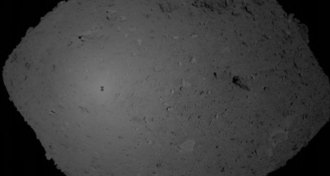 Planetary Science
Planetary ScienceHayabusa2 just tried to collect asteroid dust for the first time
The Japanese Hayabusa2 spacecraft touched down on asteroid Ryugu and attempted to gather a sample of its rock to bring back to Earth.
-
 Astronomy
AstronomyColliding neutron stars shot a light-speed jet through space
A stream of particles created in a neutron star crash, detected in 2017 using gravitational waves, could explain certain mysterious flashes of light.
-
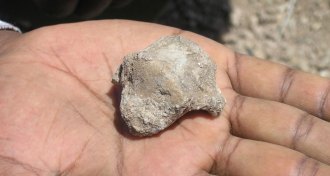 Anthropology
AnthropologyAfrican hominid fossils show ancient steps toward a two-legged stride
New Ardipithecus ramidus fossils reveal how hominids were shifting toward humanlike walking more than 4 million years ago.
By Bruce Bower -
 Health & Medicine
Health & MedicineA ban on artificial trans fats in NYC restaurants appears to be working
New Yorkers’ levels of artificial trans fats dropped, especially in people who ate out the most, after a citywide ban on the fats in restaurant foods.
-
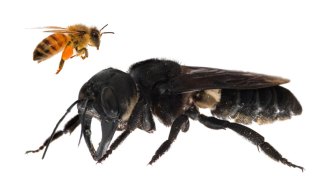 Animals
AnimalsThe world’s largest bee has been rediscovered after 38 years
Researchers rediscovered the world’s largest bee living in the forests of an island of Indonesia.
By Jeremy Rehm -
 Climate
ClimateDueling dates for a huge eruption reignite the debate over dinosaurs’ death
New dating techniques for the Deccan Traps volcanic eruptions disagree on whether they were the main culprit in the dinosaurs’ demise.
-
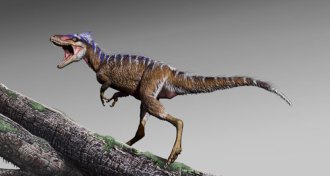 Paleontology
PaleontologyA deer-sized T. rex ancestor shows how fast tyrannosaurs became giants
A newly found dinosaur called Moros intrepidus fills a hole in the evolutionary history of tyrannosaurs, helping narrow when the group sized up.
By Jeremy Rehm -
 Chemistry
ChemistryWhy kids may be at risk from vinyl floors and fire-resistant couches
Children from homes with all vinyl floors and flame-retardant sofas show higher levels of some synthetic chemicals in their bodies than other kids.
-
 Planetary Science
Planetary ScienceMars’ lake may need an underground volcano to exist
If a lake under Martian ice is real, there must be a subsurface magma pool to keep conditions warm enough for water to remain liquid, scientists say.
-
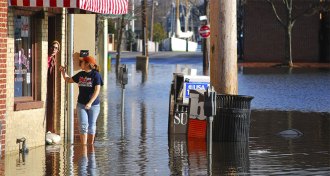 Climate
ClimateTidal floods driven by climate change may hurt small businesses
Parking data from Annapolis, Md.’s historic downtown shows how tidal flooding, driven by sea rise, can hurt local business.
By Sujata Gupta -
 Chemistry
ChemistryWhy some Georgia O’Keeffe paintings have ‘art acne’
Tiny protrusions are from chemical reactions in the paint, say scientists who developed an imaging method that could help curators track the knobs.
By Jeremy Rehm